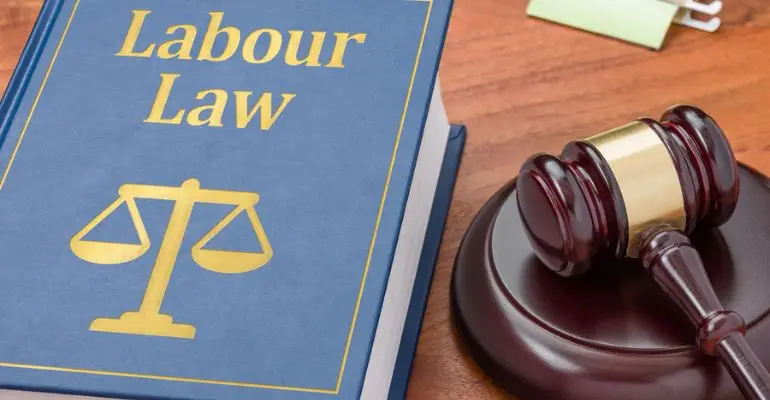Can You Sue Your Employer in Florida?

Navigating the legal landscape of employment rights can be a complex and daunting task. If you have been mistreated by your boss, direct supervisor, or company, you may feel like you have no recourse. You might consider it, but can you sue your employer in Florida?
Under certain circumstances, you may be able to take legal action against your boss and fight for your rights. With that in mind, below is everything you need to know about standing up for yourself when facing employer mistreatment.
Legal Grounds for Suing Your Employer
Before you sue your employer, you have to establish legal grounds for doing so. You can take legal action against the company you work for in several instances.
Here are a few such claims:
Wrongful Termination
Many people ask, “Can I sue my job for firing me?” And in some cases, the answer is yes. However, the incident must constitute a case of wrongful termination, which occurs when an employer violates a state and/or federal law by terminating your employment.
Florida is an “at-will” employment state, which means that companies can terminate their workers for any reason, or even no reason at all, so long as the termination is not due to an unlawful reason. Employers, therefore, are given broad discretion, but there are exceptions to that rule—the unlawful reasons for a termination.
Specifically, your employer cannot fire you based on any of the following attributes or actions:
- Race
- National Origin
- Color
- Religion
- Disability
- Gender identity
- Sex
- Pregnancy
- Military status
- Age
- Whistleblowing
- Filing or attempting to file a valid workers’ compensation claim
- Otherwise, engaging in protected activity under state or federal law (i.e., objecting to discrimination, requesting a reasonable accommodation due to a disability, etc.)
The Florida Civil Rights Act and federal laws, such as Title VII of the Civil Rights Act of 1964 and the Americans with Disabilities Act, protect against wrongful termination. You might have grounds to sue your employer if you believe you were fired unlawfully.
Discrimination and Harassment Claims
Discrimination can also provide legal grounds for suing your employer in Florida. It refers to any unfair treatment that an employee or job applicant experiences as a result of certain protected characteristics, such as:
- Race
- National origin
- Color
- Religion
- Disability
- Sex
- Gender identity
- Pregnancy
- Military status
- Age
For example, being passed over for a promotion, demoted, or refused a job based on protected characteristics would constitute discrimination. Additionally, discrimination sometimes overlaps with harassment, which can be illegal if it is based on a protected characteristic, such as those outlined above.
Many different types of harassment can occur in the workplace. Sexual harassment is one of the most egregious, occurring when a coworker or boss makes unwanted sexual comments, advances, gestures, or requests for sexual favors.
Sexual harassment usually occurs between a boss and their subordinate. If someone is in a position of power over you in the workplace, they may unlawfully use their status to manipulate you into doing things you do not want to, such as tolerating unwanted touching.
If you experience any sort of discrimination or harassment, it is important to document the incidents and report them to your employer. You can file a claim with the Equal Employment Opportunity Commission (EEOC) or the Florida Commission on Human Relations (FCHR). Both of these agencies investigate harassment claims and can take action against employers who violate the law.
Retaliation Claims
If you engage in legally protected activities, such as the ones listed below, and your employer takes negative action against you because of your actions, you may be able to file a retaliation claim.
- objecting to discrimination in the workplace,
- participating in an investigation regarding discrimination,
- requesting a reasonable accommodation for a disability,
- filing or attempting to file a valid claim for workers’ compensation benefits or
- whistleblowing.
While retaliation may be overt, such as a termination, it can also sometimes be subtle, so it is important to be mindful of how you are treated after you engage in protected activity. Look out for more nuanced forms of retaliation, such as unfavorable job assignments. In many cases, though, retaliation is more egregious, taking the form of a demotion, pay cut, or termination.
In any case, you will need to prove these three things to successfully claim retaliation:
- You engaged in a protected activity
- You experienced an adverse action
- The action was linked to your protected activity
If all of those elements are present, you may be able to sue your employer for retaliation. Legal remedies may include damages such as compensation for lost wages.
Termination Due to Illness or Disability
The Family and Medical Leave Act (FMLA) and Americans with Disabilities Act (ADA) protect ill employees. The ADA prohibits discrimination against individuals with disabilities and requires employers to provide reasonable accommodations. At the same time, the FMLA allows eligible workers to take unpaid leave from work for certain family and medical issues while having their jobs protected. If you are fired while on FMLA leave or because of a disability covered by the ADA, you may have grounds for a lawsuit.
Steps to Take if You Want to Sue Your Employer
If you think you may have grounds to sue your employer, it is crucial that you take the following measures:
Document Everything
Every detail, no matter how seemingly small, matters in employment lawsuits. Record every interaction with the person or people behind the mistreatment. Save emails, make hard copies of communications, and keep a detailed log of dates and times of any relevant in-person interactions.
You cannot rely on your place of employment to maintain email and direct message records, so print out everything. You will need as much evidence as possible to support your claims.
Gather Evidence
In addition to maintaining proper documentation, you must collect any relevant evidence to support your case. Request a copy of your performance reviews, for instance, as these can be valuable in demonstrating your behavior as an employee and proving mistreatment.
For example, suppose you have worked at a company for five years and always receive stellar performance reviews. However, after blowing the whistle on your manager for unlawful activities, you receive a string of write-ups and an abysmal performance review. Obtaining these records will help show that the negative reviews were in retaliation for your whistleblowing activities.
Report the Issue
Determine your company’s procedures for reporting discrimination, harassment, or retaliation, including whether notifying your employer or human resources department about the issue is necessary.
You need to demonstrate that you attempted to resolve the issue through proper channels before following a lawsuit. If you do not report your grievances, your employer may deny knowledge of the incident, which could hurt your ability to file a legal claim.
File a Complaint
Depending on the nature of your claim, you may also need to file a complaint with the appropriate agency, such as the EEOC or FCHR. These entities can help expedite the process and guide you to an amicable resolution. They may also take action against your employer for any violations.
Seek Legal Counsel
You need an experienced attorney with a long history of working with employee lawsuits on your side. They will be able to evaluate the merits and strengths of your case so you can make an informed decision about your next steps.
Your interactions with an attorney will begin with a consultation. Bring relevant documents with you to help the attorney understand the scope of your case, such as emails, performance reports, and any other supporting evidence that demonstrates what you are dealing with. Be specific about what happened, who is behind it, and what steps you have taken to this point.
Potential Consequences for Employers
Knowing what actually happens to your employer once you sue them depends on numerous factors, including the strength and nature of your case, and how egregious their offenses were.
If your employer is found guilty of wrongful termination, discrimination, or retaliation, they may face repercussions such as:
Legal Penalties
Your boss may have to pay fines to regulatory entities such as the EEOC or FCHR. These and other entities have penalty schedules that are meant to punish employers for unlawful behavior.
The company may also have to compensate you for lost wages, which are typically calculated based on the time period of unemployment—from termination until you secure a new employment position.
Reputational Damage
Legal issues can tarnish an employer’s reputation, affecting their ability to attract and retain talent. If your boss is found guilty of racial discrimination or another serious offense, the company may lose business altogether.
Operational Impact
Lawsuits can lead to operational disruptions and increased scrutiny from regulatory agencies. State and federal authorities take all allegations of discrimination and harassment extremely seriously.
When to Talk to an Attorney About Suing Your Employer
If you believe your employer has mistreated you and think you may have grounds to file a suit, Wenzel Fenton Cabassa, P.A. can help.
We frequently assist clients with inquiries such as “How can I sue my employer?” and “What can I sue my employer for?” Our experienced legal advisors will evaluate the merits of your case and help you decide what to do next. Contact our team today to schedule a consultation.
Please Note: At the time this article was written, the information contained within it was current based on the prevailing law at the time. Laws and precedents are subject to change, so this information may not be up to date. Always speak with a law firm regarding any legal situation to get the most current information available.
Related Posts

FREE HELP GUIDES
Dealing with unpaid wages, discrimination or wrongful termination? Get the information you need to protect your workplace rights. We offer employment law resources to help you fight for workplace justice.



